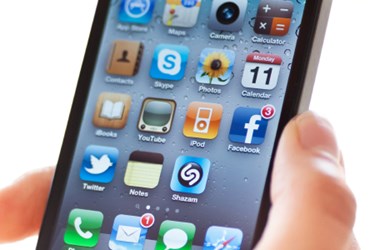Patients Willing To Link EHRs To Social Media

By Christine Kern, contributing writer

Utilizing social media could help drive healthcare quality improvement.
The rise of social media could provide an excellent source of data to help track healthcare consumer’s experiences, and apparently most patients would be ok with that according to the results of a study published by BMJ Quality and Safety.
Researchers asked adult ED patients if they would be willing to link their social media accounts to their EHR for medical research purposes, to which 71 percent of the patients agreed. The study examined Twitter as a potential source of data for capturing patient experience and patient-perceived quality of care in US hospitals.
More than 1,000 participants consented to share their social media and medical data over seven months. Analyzing content from as far back as 2009, the shared social media data consisted of nearly 1.4 million posts and tweets to Facebook and Twitter, comprising almost 12 million words.
The study was authored by Raina M. Merchant, MD, MSHP, director of the Social Media and Health Innovation Lab and an assistant professor of Emergency Medicine at Penn Medicine; Lyle Ungar, PhD, a professor of Computer and Information Science at the University of Pennsylvania Kevin A. Padrez MD (also with the department of Emergency Medicine, the University of California, San Francisco); H. Andrew Schwartz PhD; Robert J Smith; Shawndra Hill PhD; Tadas Antanavicius; Dana M. Brown; Patrick Crutchley; and David A. Asch MD, MBA. It was funded through an Innovation Grant from the Leonard Davis Institute of Health Economics at the University of Pennsylvania.
According to the findings, patients who shared their social media were younger, tended to post at least once a day, were more likely to take themselves to the emergency room, and were more likely to hold private insurance than those who declined to share their data.
“We don’t often think of our social media content as data, but the language we use and the information we post may offer valuable insights into the relationship between our everyday lives and our health,” said Merchant. “Finding ways to effectively harness and mine that data could prove to be a valuable source of information about how and why patients communicate about their health. There is a rich potential to identify health trends both in the general public and at the individual level, create education campaigns and interventions, and much more. One of the unique aspects of this data is the ability to link social media data with validated information from a health record.”
The study authors suggest a database that merges social media with EMR data has the potential to provide significant insights into patients’ health and health outcomes.
“These findings suggests that social media is a promising avenue for exploring how patients conceptualize and communicate about their specific health issues,” said Ungar. “We see this as just the first of many studies to come examining the relationship between health and social media.”
